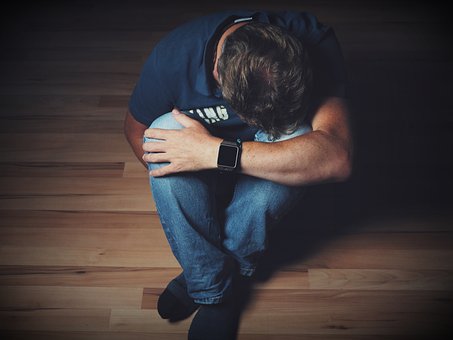Physical Address
304 North Cardinal St.
Dorchester Center, MA 02124
Physical Address
304 North Cardinal St.
Dorchester Center, MA 02124
One of the most common mental health issues that people experience all over the world is depression. Around 280 million people around the world are affected by the condition, and at its most severe, depression in either men or women can lead to an individual taking their own life.
According to the Office for National Statistics, men accounted for roughly three-quarters of all registered suicide deaths in England and Wales (in 2019). Furthermore, the rate of male suicide is at its highest since 2000. This is especially concerning given that men are less likely than women to seek help for depression.
The disorder can present itself in men in a variety of different ways, and sometimes it does so even in the absence of the classic symptoms of depression that most of us are familiar with.

Depression is a serious mood disorder that can affect people of any age, and can just as easily strike men as it does women. It results in an ongoing sense of melancholy and hopelessness, as well as a loss of interest in activities that one would normally find enjoyable.
There is a wide range of symptoms, both psychological and physiological. The presence of these symptoms of depression for at least two weeks is required to obtain a diagnosis of clinical depression.
Depression experienced by men.
Although it is widely believed and supported by statistics that women are more likely to experience depression, men are statistically less likely to admit to having the condition or seek treatment for it. This indicates that a significant number of cases of depression in men are not being properly diagnosed.
According to Lina Anderhell, a registered psychologist at Livi, “sometimes men would rather not talk about their feelings and instead may turn to other, potentially destructive ways of coping.” “Their reluctance could be because they do not wish to appear as though they are vulnerable.”
According to Anderhell, one of the primary reasons that men are less likely to seek assistance is because they “might not recognize themselves in the symptoms that are described.” For instance, it’s possible that depressed men won’t notice the classic symptoms of depression right away, such as a low or depressed mood, a change in sleep patterns, and a loss of pleasure in things they once enjoyed doing.
Men with depression may still experience sadness and a loss of interest in activities that they previously found pleasurable, but they may also exhibit other symptoms that are not necessarily associated with the condition.
The following is a list of some of the warning signs of depression in men.
Several common factors contribute to mood swings and depression in men, and the same factors can also contribute to depression in women.
It has been demonstrated that factors such as age, financial circumstances, lifestyle, illness, family history, and even genetics all play a role in determining a man’s risk of developing depression. It’s possible that someone’s downward spiral into depression was precipitated by a single stressful event or a string of them.
Depression can be triggered in men at any point in their lives by the experience of loss of any kind. This may be the result of the end of a significant relationship, the passing of a loved one, or the termination of employment.
When it comes to relationships, it can be challenging to know how to approach the sensitive topic of depression appropriately. It makes this endeavor that much more challenging if the man about whom you are concerned has become reclusive and does not communicate his emotions openly.
According to Anderhell, the most important thing you can do as a partner or a friend is to broach the topic, even if it makes you feel anxious. “Don’t be afraid to ask how someone is feeling. How are you currently feeling?”
She suggests that you talk about what you’ve observed about their behavior and what’s making you concerned about it. She says that the most important thing is not to place blame but rather to show support and to inquire of the individual if there is anything that can be done to assist them.
Be aware that the method of assistance that they require will likely vary greatly from person to person. According to Anderhell, “They may just want somebody to listen, or maybe they’d like you to go with them to see a professional.” Both of these scenarios are possible.
It is beneficial for males to talk about their issues with friends, family, or professionals, abstain from drinking too much alcohol, and live a healthy lifestyle. These are all things that can help prevent male depression.
Mindfulness training and the application of mindful techniques can also help you regulate your mood because they allow you to take a step back from a challenging situation. Endorphins, which are chemicals that make us feel good, are released into our bodies when we exercise, and this is another reason why exercise can help prevent depression in men.
Exercise of low intensity can also improve the connection between nerve cells, and as a result, it helps reduce the recurring or long-term symptoms of depression in men.

It can be difficult to determine when you should go to the doctor, especially for men, who tend to avoid seeking help. It is essential to get professional assistance as soon as you can if you are struggling with depression. Because of this, the treatment itself may become somewhat less difficult and take less time.
Your general practitioner in Livi can assist you in better comprehending the nature of your issues, in addition to providing you with guidance and support on how to manage challenging situations.
The treatment for depression can look very different depending on the person receiving it. Some men find that antidepressants or a combination of both are more effective in treating their depression, while others find that psychological support, such as cognitive behavioral therapy (CBT) and talking therapies, is more beneficial to them.